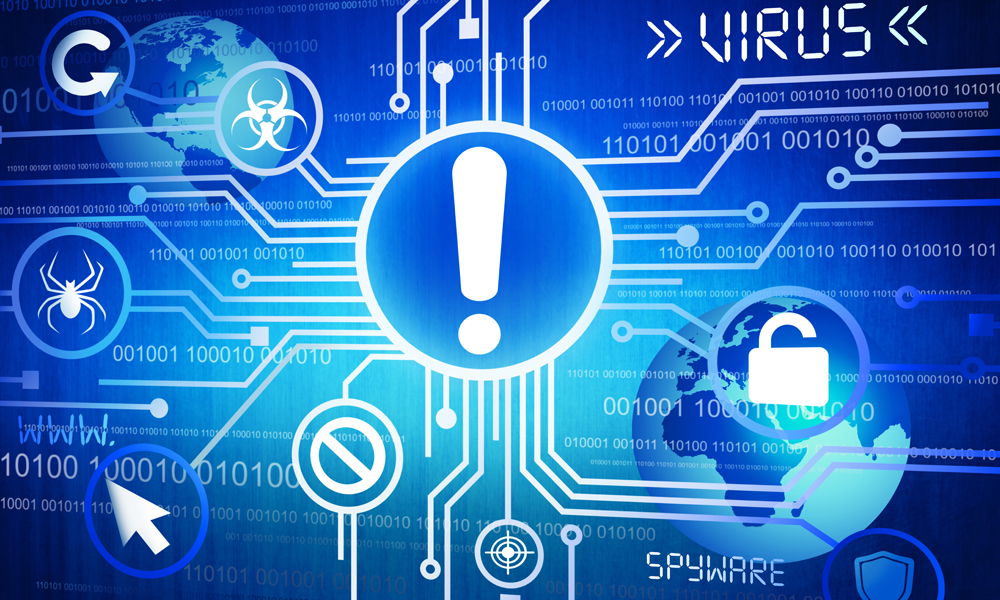
Eben Mabunda CYBER and cloud security threats have become an increasing concern to organisations, whose cost to business is too enormous to ignore, necessitating a sufficient amount of investment in cyber and cloud security.
The latest report by global tech giant IBM reveals; data breach costs rose from US$3,86 trillion in 2020 to US$4,24 trillion in 2021, the highest average total cost in the 17-year history of its report, while lost business represented the largest share of breach costs, at an average total cost of US$1,59 trillion globally.
Africa is not spared in the matrix.
The cost of cybercrime climbed to US$3,5billion, with Nigeria, Kenya, and South Africa recording the largest losses, Cyber Intelligence Africa 2022 report revealed.
In fact, according to the SA Banking Risk Information Centre, SA loses US$157million annually to cyberattacks.
Knee-jerking to the Covid-19 pandemic, telecommuting, online marketplaces, and e-governance has become the norm.
While this presents ginormous opportunities to facelift economies and rationalises public service delivery, it also poses an existential threat and exposure to cybercrime.
According to the Check Point Research’s (CPR) 2022 Security Report, overall in 2021, organisations experienced 50% more weekly cyber-attacks than in 2020, while cyber-attacks against the top 16 industries increased by an average of 55%.
- Chamisa under fire over US$120K donation
- Mavhunga puts DeMbare into Chibuku quarterfinals
- Pension funds bet on Cabora Bassa oilfields
- Councils defy govt fire tender directive
Keep Reading
A further breakdown would reveal — the education/research sector recorded 1605 weekly attacks, recording a 75% increase from 2020’s outturn ahead of every other sector.
Governments across the world saw a 47% increase in weekly attacks, registering an average of 1136 weekly attacks the world over.
Communications organisations saw an average of 1079 weekly attacks (51% increase) with software vendors experiencing the largest year-on-year growth of 146%.
The most recent Global Cybersecurity Index (GCI) released in June 2021 by the International Telecommunication Union (ITU), indicates that the levels of commitment to cybersecurity remain in the doldrums when juxtaposed to other continents.
Saeed and Osakwe 2021 noted that out of 54 African countries, 29 had passed legislation to promote cybersecurity.
Four others are currently at the stage of drafting policies or seeking legislative approval.
Of all the pillars assessed, this was the measure where the region recorded its best performance. Still, these legal frameworks lack adequate depth and breadth; only 17 African nations have adopted specific legislation to tackle online harassment.
On December 3, 2021, the Zimbabwean government gazetted the Data Protection Act.
The government says the law will safeguard users in cyberspace and that it is in line with similar laws in other countries.
A cross-section of the act highlights that the law promises to consolidate cyber-related offenses and provide for data protection with due regard to the Declaration of Rights under the Constitution and the public and national interest.
It also endeavours to create a technology-driven business environment and encourage the lawful use of technology.
Cybersecurity Ventures expects global cybercrime costs to grow by 15% per year over the next five years, reaching US$10,5 trillion annually by 2025, up from US$3 trillion in 2015.
This represents the greatest transfer of economic wealth in history, risks the incentives for innovation and investment, is exponentially larger than the damage inflicted from natural disasters in a year and will be more profitable than the global trade of all major illegal drugs combined.
Several measures can be adopted to deal with the existential threat to businesses: Increase public awareness campaigns to encourage behavioural change, devote more resources to setting up and equipping CIRTs (Cyber Incident Response Team), ensuring adequate capacity to monitor and respond to incident reports and invest in building up cybersecurity capabilities and technologies to detect and mitigate cybercrime.
- Mabunda is an analyst and TV anchor at Equity Axis, a leading financial research firm in Zimbabwe. — [email protected].











